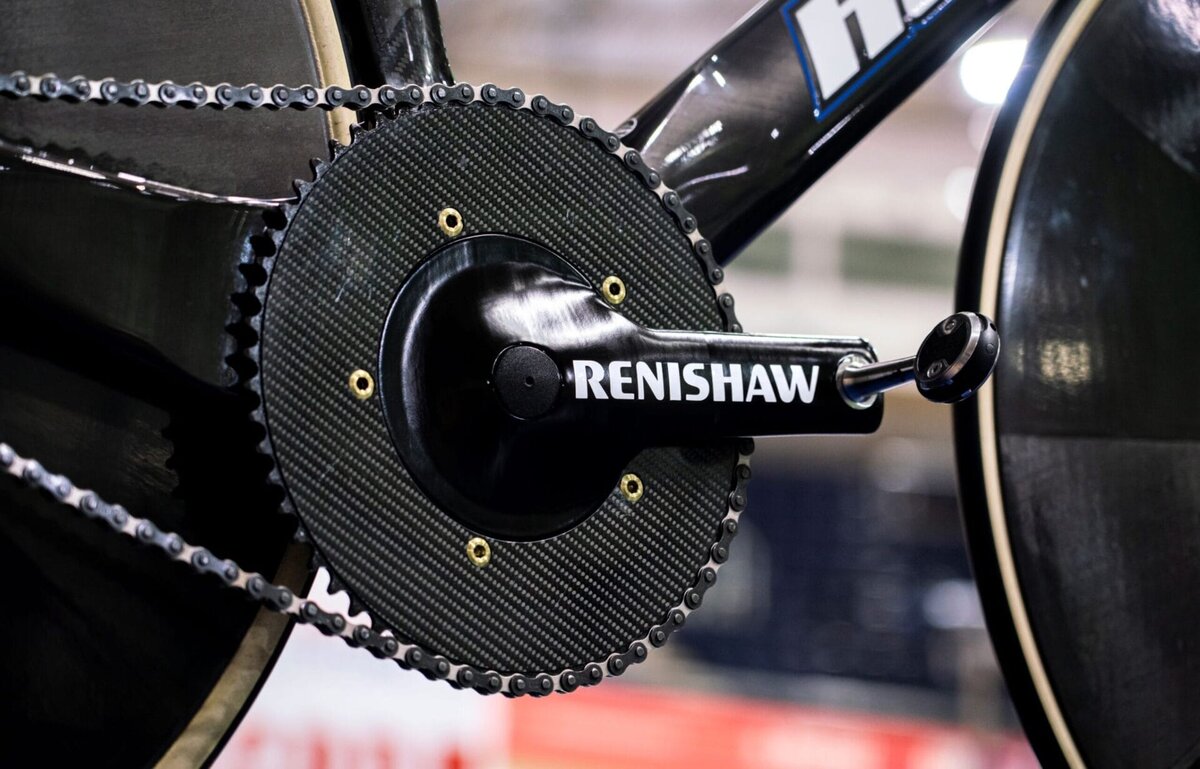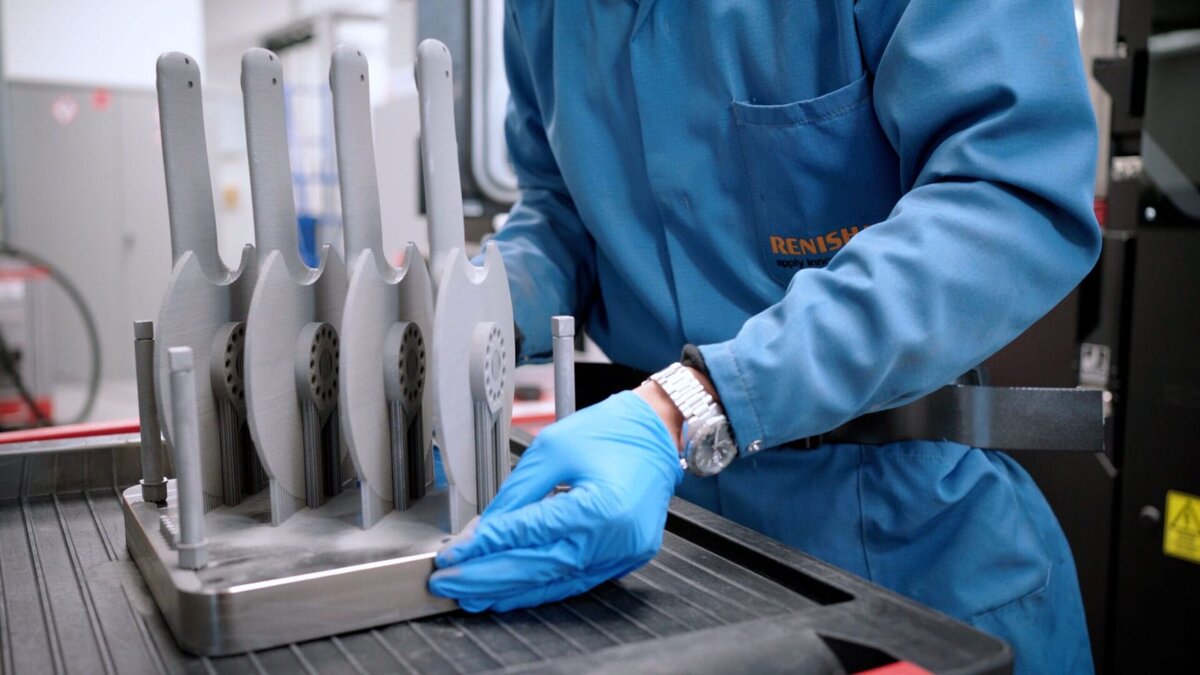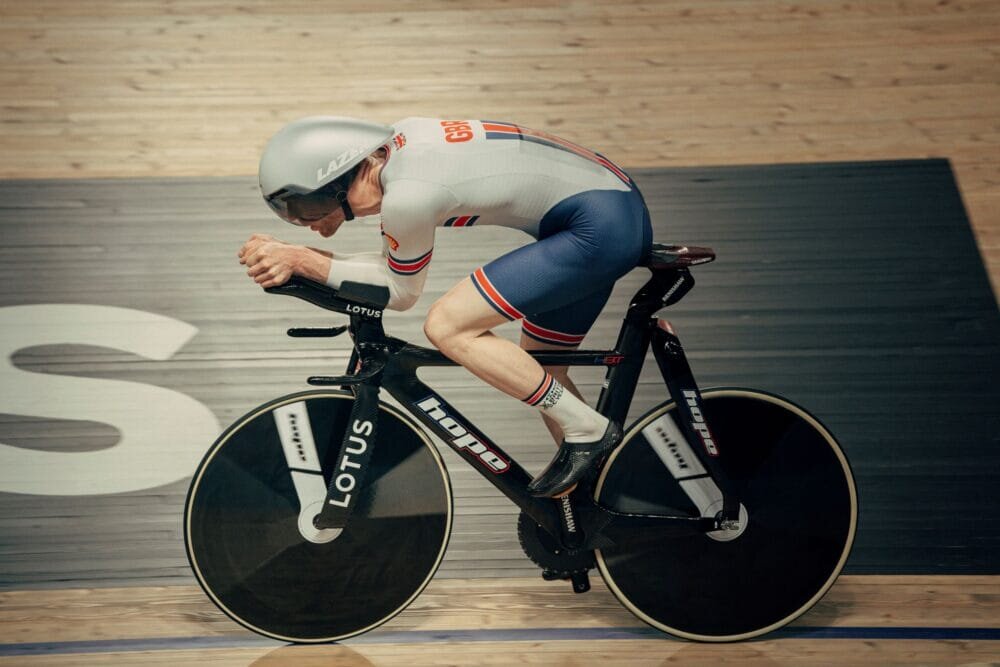As official additive manufacturing partner to British Cycling, global engineering technologies company, Renishaw, has provided components for the newly unveiled Olympic track bike for Paris 2024. Lotus Engineering and Hope Technology, Renishaw has continued its collaboration with British Cycling to develop and manufacture integral components for the track bikes, with a focus on reducing part weight and improving aerodynamics.
Renishaw has helped to design and manufacture a number of components on the bike, including the crank, seat stay bridge and dropouts, as well as a first-of-its-kind seat post created in aluminium. Using additive manufacturing (AM) to manufacture these parts allows the British Cycling team, alongside Renishaw, to change the design throughout the process and create complex and aerodynamic geometries that would not be possible using traditional manufacturing technologies.
Renishaw helped to design the internal structure of the titanium crank, to deliver an optimised lightweight part. By using an internal lattice structure that is not possible using other manufacturing methods, Renishaw has been able to maintain the strength of the part, whilst keeping it lightweight enough to accommodate the overall weight limits for the bike.
“After Team GB brought home seven Olympic medals from the Tokyo Olympics, we were delighted to be asked to continue our partnership with the British Cycling team and develop components for the Paris 2024 bike,” said Ben Collins, Lead Additive Manufacturing Application Engineer at Renishaw. “Bringing together the best of British engineering talent, we have been able to refine the design even further and showcase how additive manufacturing can deliver strong, yet lightweight parts for cycling, while demonstrating these benefits to other industries. Every bike is tailored to the measurements of the athletes, which is more difficult and costly using traditional manufacturing techniques, so it’s a great example of the role of AM in bespoke manufacturing.”

“It was great to see the success of Team GB and the bike in the last Olympic cycle and we are excited to see how the bike performs in Paris after creating the split seat post, seat bridge, dropouts and crank,” added Collins. “Our aim for this Olympic bike is to push the boundaries with AM technology further, whilst still achieving high-performance components that are tailored to the riders and meet Olympic requirements for strength and weight.”

“As industry leaders in additive manufacturing, Renishaw has provided support in design and production of wind tunnel models and prototype parts during the development of the Paris Olympic bike,” said Oliver Caddy, Lead Project Engineer at British Cycling. “However, Renishaw’s contribution is not limited to development as crucial elements of the bike, including the seat posts and crank, have now also been produced by additive manufacturing, showcasing its power in the cycling industry.”
“The Renishaw team has been incredibly reliable throughout the entire process of developing parts ahead of the 2024 Olympics,” explained Caddy. “It’s clear that they are as committed as we are to delivering excellence on this project. It’s also appreciated by the athletes that are working hard to ready themselves for their events in the summer.”
The new cutting-edge bike will be ridden by Great Britain’s cyclists at the Paris 2024 Olympics track cycling events. These take place between August 5th and 11th at the Paris 2024 Olympic Games National Velodrome.
For further information on Renishaw’s AM products, visit https://www.renishaw.com/en/metal-3d-printing








